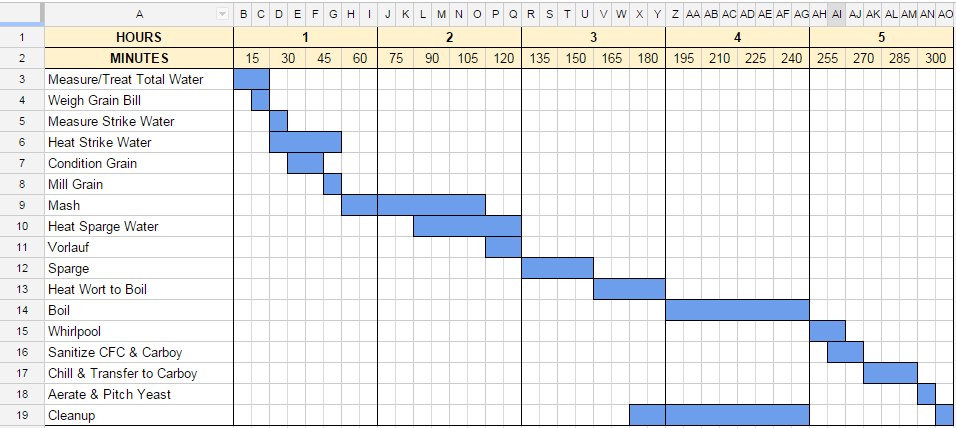I understand the brewing after kids go to bed thing... it is the only time you're truly off duty. Both of mine used to be sacked by 7, but the oldest is up until 8 these days.
I don't mind brewing till midnight though, as long as I've got a brew available. I think as other's have stated, preparation is the key. Have tools, cleaning and equipment ready to go laid out in an organized manner.
Start heating your strike water 20 minutes before your kid's bedtime so you can mash in as soon as they hit the sack.
There is a lot of downtime in all grain brewing, so during the mash, you can prep your boil kettle and sparge water. During the boil you can prep your chiller and fermenter. If you've prepared right, there is no reason you can't get a brew day done in 4 hours.
I don't mind brewing till midnight though, as long as I've got a brew available. I think as other's have stated, preparation is the key. Have tools, cleaning and equipment ready to go laid out in an organized manner.
Start heating your strike water 20 minutes before your kid's bedtime so you can mash in as soon as they hit the sack.
There is a lot of downtime in all grain brewing, so during the mash, you can prep your boil kettle and sparge water. During the boil you can prep your chiller and fermenter. If you've prepared right, there is no reason you can't get a brew day done in 4 hours.










![Craft A Brew - Safale BE-256 Yeast - Fermentis - Belgian Ale Dry Yeast - For Belgian & Strong Ales - Ingredients for Home Brewing - Beer Making Supplies - [3 Pack]](https://m.media-amazon.com/images/I/51bcKEwQmWL._SL500_.jpg)















































